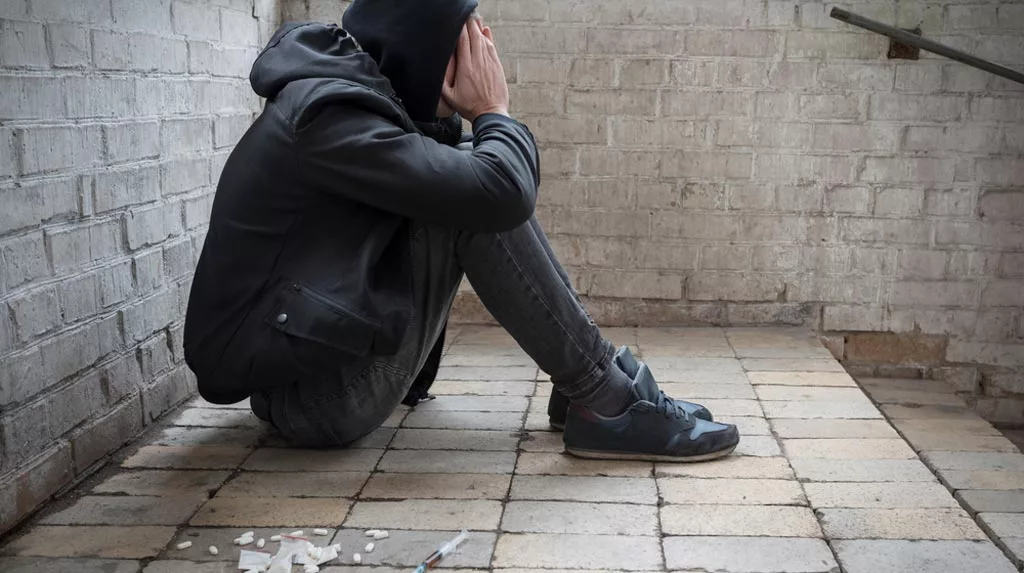Cocaine Detox: The South Shores Recovery Approach
Cocaine addiction is a destructive, dangerous and costly condition, and detoxing from cocaine can be an equally difficult process to go through. For those who have been abusing this drug for a long period of time, stopping their cocaine use can come with various complications.
It is important to understand the process of detoxing from cocaine and to be aware of the potential complications that can arise during the process.
Keep reading to learn more about this process, and how the South Shores Recovery facility can help you safely and successfully detox from cocaine.
Why You Should Attend a Cocaine Detox Program
The first step in cocaine detox is to stop using the drug. This can be difficult for many people because of the strong cocaine cravings and their physical and psychological dependence on the drug. In many cases, a person may need to seek professional help in order to make this transition.
Professional help can come in the form of therapy, support groups, or medications to manage cravings and withdrawal symptoms. The South Shores Recovery center offers various cocaine addiction treatment services to help our clients overcome their drug abuse and lead healthier lives.
What are the Side Effects of Cocaine Abuse?
Cocaine is a powerful stimulant drug that has been abused for centuries. It causes a strong sense of euphoria and excitement, but it can also have serious side effects that can be both physical and mental.
Cocaine abuse is a serious problem with potentially devastating consequences. If you or someone you know is struggling with cocaine abuse, it is important to seek help as soon as possible.
Some of the most common side effects and symptoms of cocaine abuse include:
Short-Term Effects
In the short-term, cocaine can cause users to experience a number of unpleasant side effects. Some of the most common include nausea, vomiting, stomach cramps, and diarrhea. It can also damage the lining of the stomach and intestines.
Cocaine abuse can also cause respiratory issues, such as chest pain, coughing, and difficulty breathing. When taking high doses of cocaine, or combining it with other drugs, this can also increase a person’s risk of experiencing a drug overdose, which can be fatal.
Long-Term Effects
As a highly dangerous drug, abusing cocaine over a long period of time can have many negative health effects. For starters, long-term cocaine abuse can lead to changes in mood and behavior. It can also cause paranoia, anxiety, and depression. In extreme cases, it can even lead to psychosis.
Another common side effect of chronic cocaine use is the development of heart problems. Cocaine can cause irregular heart rate, high blood pressure, and even a heart attack. It can also increase the risk of stroke.
Long-term substance abuse can also damage the heart and circulatory system. In some cases, cocaine can cause fertility issues in both men and women. It can also increase the risk of miscarriage and stillbirth.
Finally, long-term cocaine use can cause changes in the brain, leading to poor decision-making, memory loss, and difficulty concentrating. Overall, the side effects of chronic cocaine use can be extremely detrimental to a user’s physical and emotional wellbeing. If you or a loved one is struggling with cocaine abuse, the South Shores Recovery team is here to help.
Recognizing the Signs of Cocaine Addiction
Cocaine addiction is a serious problem that can have a devastating effect on an individual’s life. Unfortunately, it can be difficult to spot the signs of addiction, as many people are able to hide their drug use from friends, family, and co-workers.
Furthermore, the signs and behaviors of addiction can vary widely from person to person. However, there are some common signs and symptoms of cocaine addiction that can be used to identify a potential problem.
The first sign of cocaine addiction is a change in behavior. Those who are addicted to cocaine often become more secretive and may start to isolate themselves from friends and family. They may also become more irritable, have poor concentration, or show signs of depression.
Another common sign of cocaine addiction is a dramatic change in physical appearance. People who are addicted to cocaine may lose a significant amount of weight, have dark circles under their eyes, or may appear to be constantly exhausted.
Letting Everything Else Fall By the Wayside
An often noticeable sign of cocaine addiction is an increase in financial problems. Those who are addicted to cocaine often spend large amounts of money on the drug and may begin to neglect other financial obligations. They may also start to borrow money from friends and family or use credit cards to pay for their drug habit.
Finally, those who are addicted to cocaine may become obsessed with the drug. They may become unable to think about anything other than using the drug and may go to any lengths to get their hands on it. They may also become desperate to get their fix, and may be willing to do anything to get their hands on the drug.
If you or someone you know is exhibiting any of these signs of cocaine addiction, it is important to seek help as soon as possible. Addiction is a serious problem that can have a devastating effect on an individual’s life, and the sooner it is addressed the better.
At South Shores Recovery, we offer a variety of treatments to our clients to help them beat cocaine addiction and live a happy and healthy life.
Is Medical Detox Needed for Cocaine Addiction?
The physical and psychological effects of cocaine use can cause a person to become dependent on the drug, resulting in a cycle of use and relapse. In order to break this cycle and achieve long-term recovery, it is essential to go through a medically supervised detox process.
Medical detox for cocaine addiction is a process that helps to safely and comfortably manage the withdrawal symptoms associated with quitting the drug. These symptoms can include intense cravings, depression, anxiety, insomnia, and physical discomfort.
The goal of medical detox is to help the user manage these symptoms, as well as any other psychological or physical health issues that may arise. During detox, the person will be monitored by medical professionals to ensure their safety and wellbeing.
Medications may be prescribed to help manage the person’s withdrawal symptoms, and counseling or therapy may also be provided to help them develop the necessary coping skills to prevent relapse.
Moving Past Detox into Recovery from Cocaine Use
It is important to note that medical detox for cocaine addiction is not a cure on its own. While it helps you stop using cocaine safely, this will be just the start of your recovery process. To achieve long-term sobriety, it is necessary to also participate in a comprehensive treatment program that addresses the underlying causes of your addiction.
For those who are ready to start the journey of recovery, medical detox can be the first step on the road to lasting sobriety and health. The South Shores Recovery cocaine detox center is just one of the many treatment options our program provides. We support our clients not just in their early recovery stages, but throughout the entirety of their journey to sobriety.
What are the Typical Cocaine Withdrawal Symptoms?
Cocaine withdrawal symptoms can be both psychological and physical in nature, and occur when someone who has been using cocaine for an extended period of time suddenly stops using the drug.
The severity of these withdrawal symptoms can vary depending on the length of time the individual has been using the drug, the amount taken, and the individual’s physical and psychological makeup.
It is important to note that cocaine withdrawal symptoms can be severe and even life-threatening. It is therefore important for anyone who is experiencing cocaine withdrawal symptoms to seek medical help.
Medical professionals can provide medication and other forms of treatment to help manage the symptoms and ensure the individual’s safety. Cocaine withdrawal is a difficult process, but with the right support and treatment, individuals can overcome their addiction and begin the journey toward a healthier, substance-free lifestyle.
Physical Symptoms
The most common physical cocaine withdrawal symptoms are intense cravings for the drug, fatigue, depression, anxiety, irritability, agitation, difficulty sleeping, and difficulty concentrating.
The cravings associated with cocaine withdrawal are often intense and may last for several weeks. Other more severe physical symptoms of cocaine withdrawal may include headaches, nausea, vomiting, muscle aches, and sweating.
Psychological Symptoms
Abrupt cessation of this drug use can lead to a range of psychological symptoms of cocaine withdrawal, including extreme fatigue, depression, anxiety, irritability, and cravings for the drug. In some cases, these can become severe withdrawal symptoms which can be devastating if not properly addressed.
In some cases, individuals may also experience psychological symptoms such as confusion, paranoia, and hallucinations. It is important to note that these symptoms are not indicative of a mental health disorder, but rather a result of the body’s response to the sudden cessation of cocaine use.
In more severe cases of psychological withdrawal, individual’s may start to experience suicidal thoughts and ideations. This is one of the main reasons why it is so important to seek professional treatment when trying to overcome cocaine addiction.
Emotional Symptoms
In addition to the physical and psychological symptoms of cocaine withdrawal, individuals may also experience a range of emotional symptoms. These may include feelings of guilt, shame, and regret, as well as increased sensitivity to stress.
The Cocaine Withdrawal Timeline
Though withdrawal symptoms vary depending on the individual and the length of time spent using cocaine, there are some common signs and symptoms that are seen during the withdrawal process. Knowing the cocaine withdrawal timeline can help those dependent on the drug to properly prepare for the difficult process ahead.
Acute Withdrawal Phase
The withdrawal process begins within a few hours of the last use of cocaine. During this time, the user may experience intense cravings, agitation, and irritability. These feelings can be so intense that some users may feel the urge to use the drug again in order to ease the symptoms. This is known as the crash phase and can last for several days.
The acute withdrawal phase usually begins within a few days after the crash phase and can last for several weeks. During this time, the user may experience intense cravings, depression, insomnia, mood swings, and fatigue. Other symptoms may include headaches, nausea, and vomiting.
Protracted Withdrawal Phase
The protracted withdrawal phase is the most difficult stage of the cocaine withdrawal timeline. This phase can last for months or even years and is characterized by intense cravings, depression, anxiety, and irritability. This phase is also marked by intense psychological and physiological changes that can include changes in appetite, sleep patterns, and energy levels.
Medications Used During the Cocaine Detox Process
The most common medications used to treat cocaine withdrawal are antidepressants. Antidepressants can help reduce cravings for cocaine and reduce the severity of the withdrawal symptoms.
Another class of drugs used to treat cocaine withdrawal is called mood stabilizers. These drugs help to stabilize mood swings and reduce anxiety and agitation associated with cocaine withdrawal.
Antipsychotic medications are sometimes used to treat cocaine withdrawal. These drugs can help reduce paranoid and psychotic behaviors associated with cocaine withdrawal. Lastly, recovering individuals may be prescribed medications to help reduce cravings for cocaine.
At South Shores Recovery, we are dedicated to helping our clients have the best tools and resources possible for overcoming cocaine addiction, including a healthy diet and certain medications they may need to make it through the detox process safely and successfully.
Therapies Used During the Detox Process
The Substance Abuse and Mental Health Services Administration (SAMHSA) states that with an addiction, so too will many people experience mental health symptoms, which may cause or contribute to their addictive behaviors.
Because of this, the cocaine detox process at South Shores Recovery incorporates various therapies to help address the underlying factors of our clients’ addictions. This includes individual, group, and family therapy sessions, as well as behavioral therapies and other therapeutic interventions.
Each of these services can help our clients understand their addiction and develop the necessary tools and skills to lead healthier, substance-free lives.
What are the Risks of At-Home Cocaine Detox?
There are several major risk factors associated with attempting to overcome a drug or alcohol dependence without professional help. In order to safely beat a cocaine dependence, individuals should not attempt to do so at home.
Without the constant medical supervision and drug-free environment provided through professional detox programs, it will be harder to manage the withdrawal symptoms and severe cravings that come up during the early stages of recovery.
This is particularly true for those who may be struggling with a co-occurring mental illness or medical condition. In order to avoid the temptation of relapsing with addictive substances, individuals are encouraged to seek medical assistance through a professional detox program.
Seeking Treatment for Cocaine with South Shores
At South Shores Recovery, our detox treatment is designed to help our clients detox from cocaine and other substances as safely and comfortably as possible. We understand that our clients’ substance use disorders do not stem from a lack of judgment or moral character.
We strive to provide effective treatment through a variety of programs, including inpatient and residential treatment, as well our outpatient program and, of course, medical detox services to serve all of our clients’ personal care needs.
No matter what type of treatment you need, the South Shores Recovery team has you covered. Please reach out to get a confidential consultation, and get options for a new life now!
Contact the South Shores Recovery Team Today!
If you or a loved one is struggling with cocaine addiction, the South Shores Recovery detox program can help you safely and successfully stop using this harmful drug.
You can contact our team today, and we will help verify your health insurance and walk you through the treatment process. You deserve to live a healthy, substance-free life. So call now to get started on your journey to achieving long-term sobriety today!





